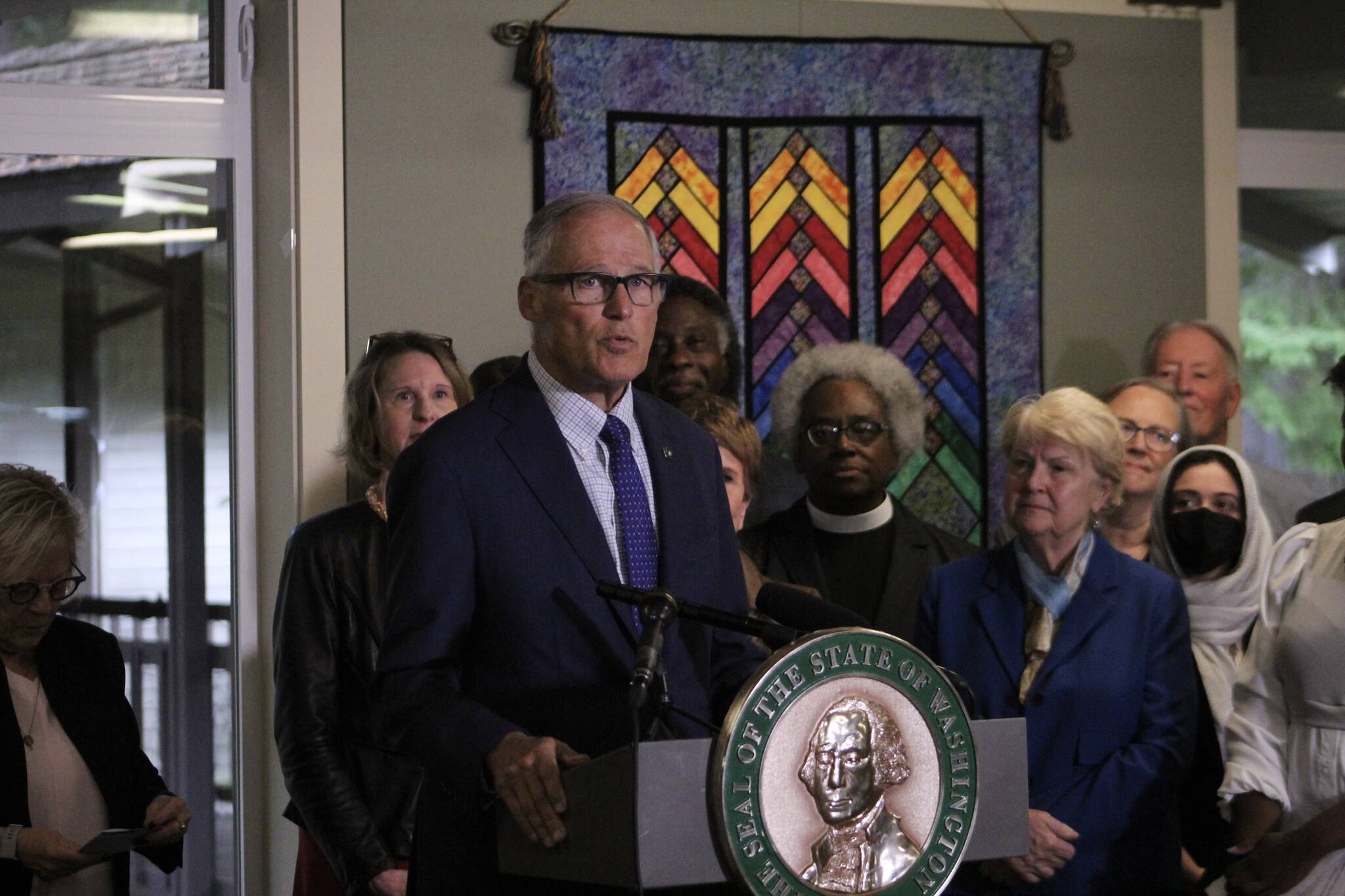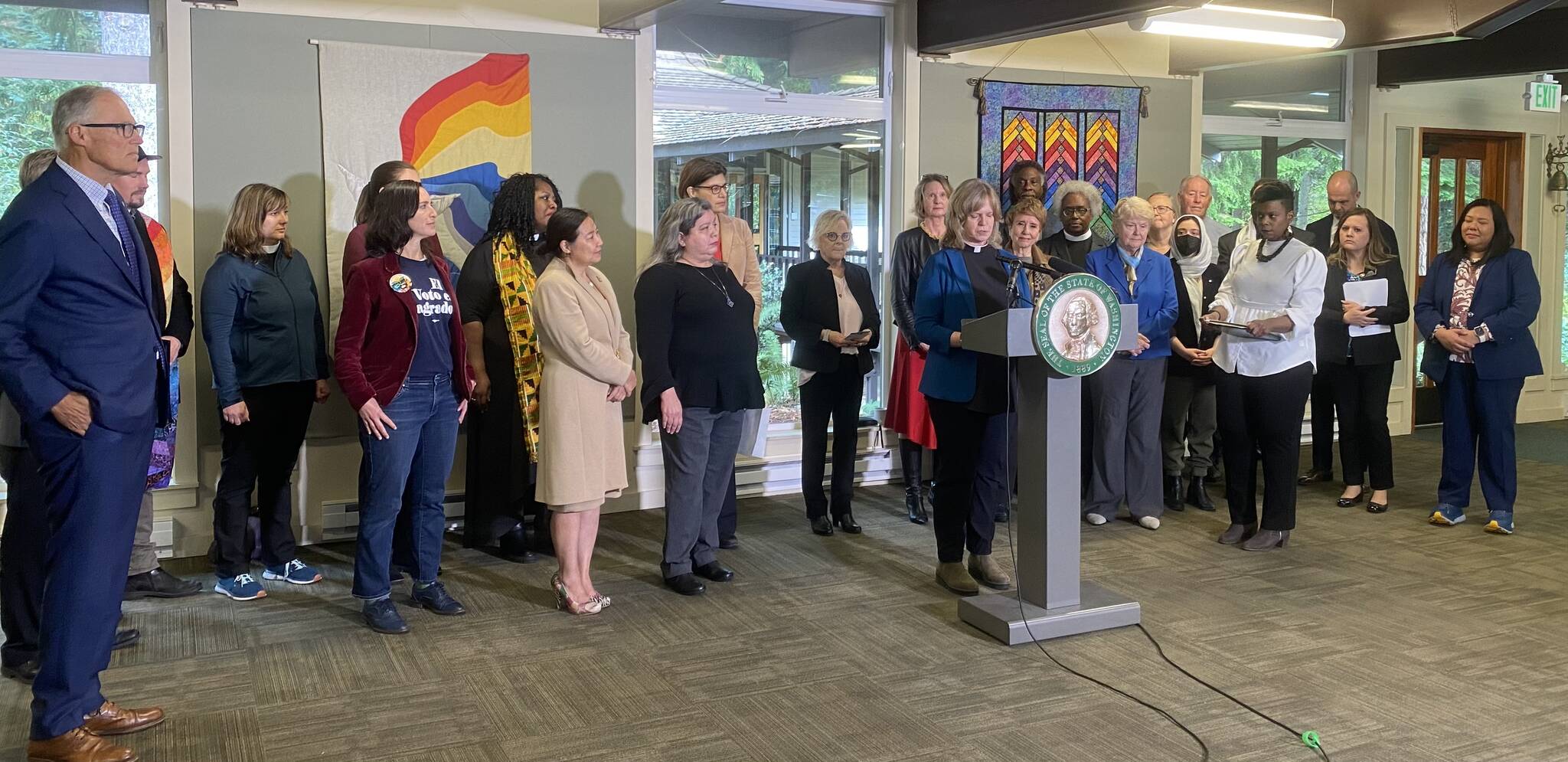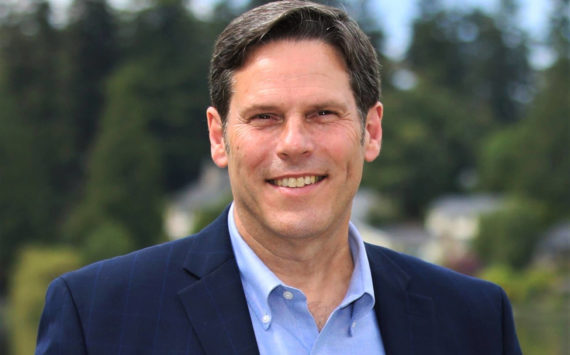Lawmakers are intensifying efforts to protect access to reproductive health care and gender-affirming care in Washington as part of a 2023 legislative package.
At a news conference on Oct. 28, health care providers, faith leaders and elected officials gathered to announce new legislation aimed at protecting a person’s right to an abortion in Washington.
“Washington state was a pro-choice state. Washington state is a pro-choice state. And we are going to do everything humanly possible to make sure Washington is always a pro-choice state,” said Gov. Jay Inslee Oct. 28.
Held at Wayside United Church of Christ in Federal Way on Friday afternoon, Inslee joined Sen. Claire Wilson, D-Federal Way, and Rep. Jamila Taylor, D-Federal Way; Sen. Karen Keiser, D-Des Moines; and Rep. Drew Hansen, D-Bainbridge Island, and Rep. Tarra Simmons, D-Bremerton.
Access to a women’s right to choice is a health care issue, and needs to remain the providence of individual Washingtonian women, Inslee said of the new policies.
“These laws will prohibit other states of these anti-choice, dictatorial politicians who want to control a woman’s right of choice in our state,” Inslee said. “We will keep their tentacles [of restrictive states] out of the state of Washington.”
Inslee said there is an ongoing, daily attack on a woman’s right to choose in Washington state. In the last several years, dozens of bill shave been introduced aimed at restricting women’s rights, and several candidates in this year’s election cycle are campaigning on the anti-abortion platform, he said.
Hansen, chair of the state’s Civil Rights and Judiciary Committee, is introducing a sanctuary bill providing legal tools and protections to patients and providers if any criminal or civil action is taken against them for lawfully receiving, assisting or providing legal reproductive health care services or gender-affirming services in Washington.
Even before the U.S. Supreme Court overturned Roe v. Wade in June this year, Hansen said other states, such as Texas, were “creatively and aggressively” working to limit a woman’s access to reproductive healthcare and criminalize abortion.
The “shield bill” prevents other states from using Washington state courts or the judicial system to enforce anti-choice laws through civil and criminal procedure and remedies, he said.
Civil procedure blocks certain ways to gather evidence, such as out-of-state subpoenas, when pressing charges against people who have sought abortions in Washington. With criminal procedure, if a resident from another state seeks an abortion in Washington, the bill blocks any form of warrants targeting the person. Remedies will also be in place to protect both patients and providers from being harassed by anti-choice states, political leaders and laws in assisting someone in getting reproductive health care, he added.
“We can’t do everything to protect people in Texas or elsewhere, but we are using the absolute limits of our authority to protect reproductive rights as far as we can across the country,” Hansen said.
Simmons, vice chair of the Civil Rights judiciary committee and a former registered nurse, advocated for her Keep Our Care Act bill which did not pass in the last legislative session. This bill prohibits healthcare consolidations, mergers and acquisitions from limiting access to reproductive and gender-affirming care by review from the Washington State Attorney General’s Office prior to the completion of the deal.
Health care consolidations restrict access to reproductive health care, impact the quality and affordability of care received, she said.
Keiser said she plans to introduce a bill next year that “protects and indemnifies companies and corporations who are headquartered in our state, but have employees in states where there are abortion restrictions,” she said. This approach stops governors from trying to levy taxes or other retaliatory actions against Washington companies.
In Washington, some providers have been providing abortion services for decades and must be protected, said Mercedes Sanchez of Cedar River Clinics. Run by Feminist Women’s Health Center (FWHC), the clinics offers abortion services and other reproductive health resources in Renton, Tacoma and Yakima.
“This is a national health crisis and it will be a rising tide of patients for years and years to come,” she said, met with agreement from the leaders surrounding her at the podium. “… Bodily autonomy is a human right, one that we here in Washington are prepared to fight for and protect.”









